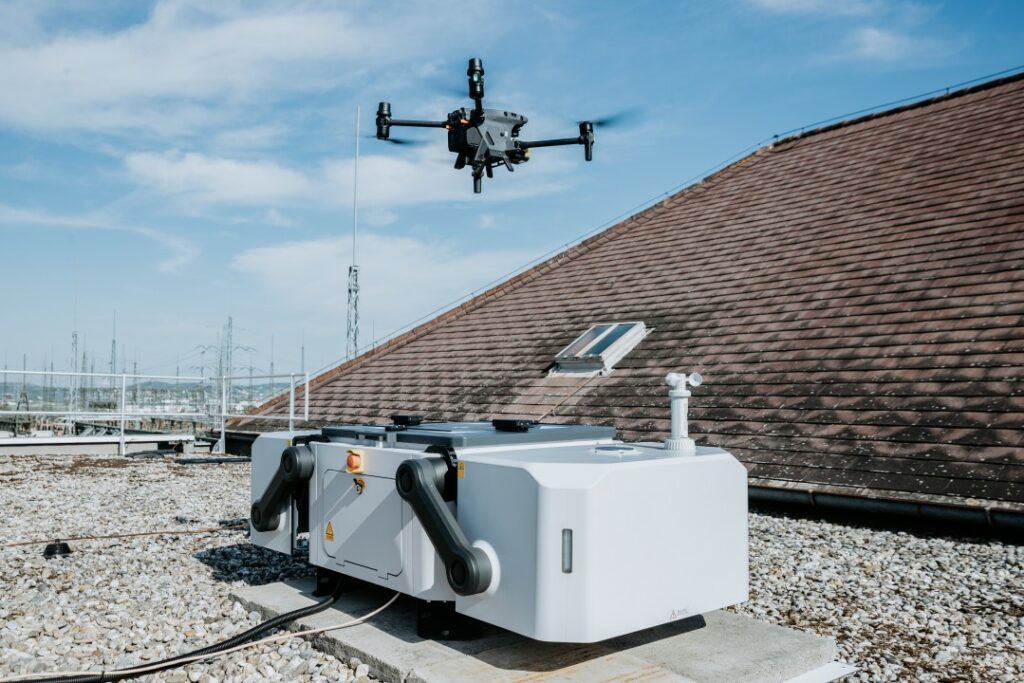
BVLOS drone operations are redefining commercial and industrial methodologies or even traditional drone operations. The leading commercial drones are all battery-operated which naturally results in lesser carbon emissions, this can be further improved by using renewably sourced energy for charging. Additionally, where before with BVLOS operations you had the requirement of a manned drone team on-site to operate the drone, you can now eliminate the need and carbon emissions from the transportation of the team to the site.

Revolutionising Logistics: The logistics sector stands to gain enormously from BVLOS drone technology. Aside from the notable reduction in emissions compared to conventional delivery systems, drones offer the convenience of direct deliveries to residents and businesses. This could lead to fewer car journeys, as individuals no longer need to drive to stores or pickup points, subsequently reducing congestion and associated emissions.
Regulatory Advancements: As BVLOS drone operations receive more widespread regulatory approval, the environmental benefits are expected to grow. The elimination of LOS (Line of Sight) limitations, which often constrict drone range, can lead to fewer human-driven trips, further shrinking carbon footprints.

The contemporary surge in crude oil prices brings into sharp focus the economic and environmental repercussions of reliance on traditional fuels. BVLOS Drone operations offer a buffer against these unforeseen price spikes and operational costs. Additionally, embracing full autonomy translates to fewer human operators and reduces the need for visual observers, thus lowering overall operational expenses.
BVLOS drones offer unmatched adaptability, granting them an edge over conventional means. Drones present a risk-free alternative for tasks in hazardous environments, reducing human exposure. Their BVLOS capabilities extend their reach, and inherent autonomy minimises human-induced errors.
While the potential of BVLOS drones is undeniable, their seamless integration into global airspaces demands meticulous regulation and stringent safety measures. For businesses looking to transition to BVLOS operations, a robust product like the DJI Dock along with strict adherence to local rules and regulations is a must to ensure safe and effective operations.
DJI, a forerunner in drone technology, has been at the helm of several groundbreaking innovations. One such innovation is the DJI Dock, designed to streamline drone operations further and optimise their usage in various sectors.
The DJI Dock acts as an automated hub, ensuring that drones are not only readily available but are also charged, maintained, and dispatched without human intervention. This means drones can now operate continuously, significantly enhancing efficiency, especially in sectors that require persistent monitoring like agriculture, security, and infrastructure inspection.
Beyond mere utility, the DJI Dock epitomises the shift towards complete automation in the UAV sector. By negating the need for human involvement in preparatory and post-flight processes, it is poised to play a crucial role in minimising human intervention, thus bolstering the safety, reliability & sustainability of drone operations.
In a rapidly evolving drone landscape, innovations like the DJI Dock underline the industry’s trajectory towards enhanced autonomy and sustainability. As businesses increasingly integrate drones into their operational framework, such automated systems ensure that they extract maximum utility from these aerial marvels.
As businesses worldwide grapple with the twin challenges of environmental responsibility and operational efficiency, these drones offer promising a harmonious blend of both. As we approach a new era, BVLOS drones stand poised to redefine our skies and the way we operate within them.